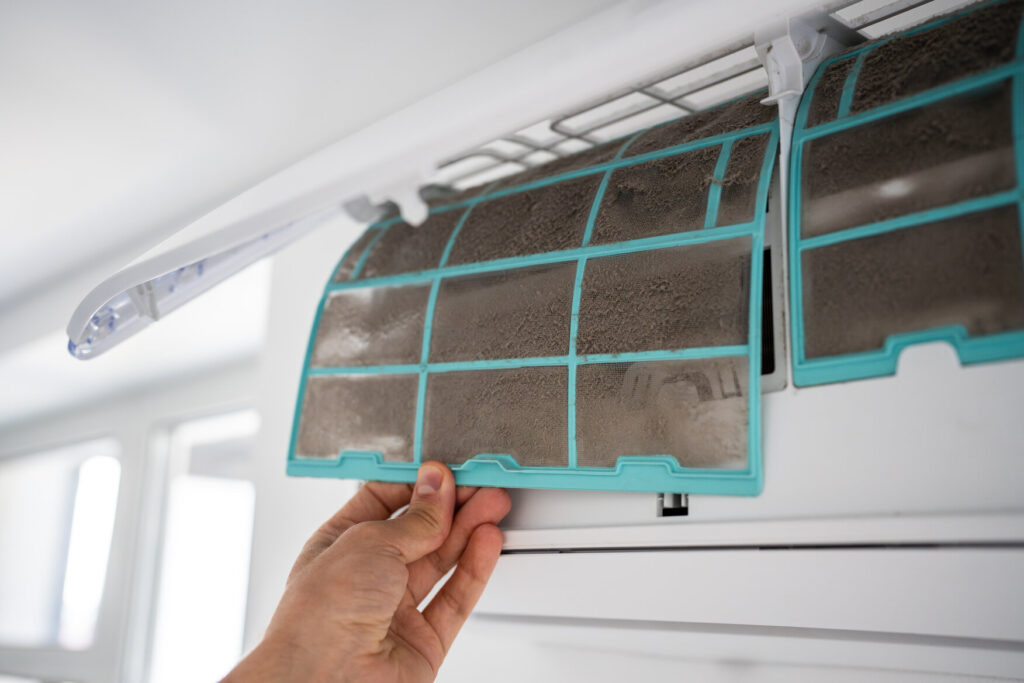How Air Filter Replacement Can Improve Your Home's Air Quality in Rockwall, TX
Maintaining clean air in your home is crucial for the health and well-being of your family. One key component in achieving this is the regular replacement of your HVAC system’s air filter. Air filters play a vital role in trapping dust, pollen, and other airborne particles, preventing them from circulating throughout your home. Over time, these filters can become dirty and less effective, reducing air quality and putting additional strain on your HVAC system.
Understanding the Importance of Air Filter Replacement
Air filter replacement plays a crucial role in maintaining indoor air quality and the overall efficiency of your HVAC system. The primary function of an air filter is to trap airborne particles such as dust, pollen, and pet dander, preventing them from circulating within your home. Over time, these filters become clogged with debris, reducing their effectiveness.
A clean air filter ensures that the air you breathe is free from harmful pollutants. This is especially important for individuals with allergies or respiratory conditions. By regularly replacing your air filter, you can help maintain a healthy indoor environment, reducing the risk of respiratory issues caused by poor air quality.
Moreover, a clean air filter allows your HVAC system to perform optimally. When filters are clogged, the system has to work harder to pull air through the filter, leading to increased energy consumption and potential wear and tear on the system. Regular replacement helps maintain efficient operation, prolongs the lifespan of your HVAC system, and lowers your energy bills.
Common Signs Your Air Filter Needs Replacement
Recognizing when it’s time to replace your air filter is essential for maintaining good air quality and system efficiency. Here are some common signs that indicate your air filter needs to be changed:
- Visible Dirt and Debris: If you can see a significant amount of dust and debris on the filter, it’s a clear sign that it needs replacement.
- Increased Allergy Symptoms: If you notice an increase in allergy or asthma symptoms among your family members, it may be due to a dirty air filter that is no longer trapping allergens effectively.
- Unusual HVAC Performance: A clogged air filter can cause your HVAC system to work harder, leading to inconsistent temperatures, longer running times, or even system malfunctions.
- Higher Energy Bills: If you see a sudden spike in your energy bills without any change in usage, a dirty air filter could be causing your HVAC system to use more energy.
- Regular Inspection Schedule: Even if you don’t notice any of the above signs, it’s good practice to inspect and replace your air filter every 1-3 months, depending on the manufacturer’s recommendations and your specific conditions.
By paying attention to these signs, you can ensure timely air filter replacements, keeping your home’s air quality high and your HVAC system running smoothly.
How Clean Air Filters Improve Air Quality
Clean air filters are essential for maintaining high indoor air quality in your home. When air filters are free from dirt and debris, they can effectively capture airborne contaminants such as dust, pollen, pet dander, and mold spores. This prevents these pollutants from circulating through your HVAC system and entering your living spaces.
One of the primary benefits of clean air filters is the reduction of allergens in your home. For families with allergy sufferers, this means fewer symptoms and a more comfortable living environment. Clean air filters also help in controlling odors by trapping particles that cause unpleasant smells, leading to fresher indoor air.
Moreover, clean air filters ensure that your HVAC system operates efficiently. When the filters are not clogged, air flows freely through the system, allowing it to function properly without unnecessary strain. This enhances the system’s ability to regulate indoor temperatures and maintain a consistent airflow, contributing to overall comfort and well-being.
Best Practices for Maintaining Your HVAC System
Maintaining your HVAC system is key to ensuring its longevity and efficiency. Regular upkeep not only enhances performance but also prevents costly repairs. Here are some best practices for maintaining your HVAC system:
- Regular Filter Replacement: Change your air filters every 1-3 months, or as recommended by the manufacturer, to ensure optimal performance and air quality.
- Annual Professional Maintenance: Schedule yearly inspections and tune-ups with professional technicians to check for any potential issues and keep your system in top condition.
- Clean Around the Unit: Keep the area around your HVAC unit clean and free of debris to ensure proper airflow and reduce the risk of damage.
- Check and Seal Ductwork: Inspect your ductwork for leaks and seal any gaps to improve efficiency and prevent loss of conditioned air.
- Monitor System Performance: Pay attention to unusual noises, inconsistent temperatures, or an increase in energy bills, as these can be early signs of problems that need professional attention.
By following these best practices, you can maintain a reliable and efficient HVAC system, ensuring a comfortable and healthy environment in your home.
Conclusion
Replacing your air filter regularly is an essential step in maintaining high air quality and the efficient performance of your HVAC system. Clean air filters prevent airborne contaminants from circulating in your home, providing a healthier environment for you and your family. Moreover, consistent maintenance can save energy and prolong the lifespan of your HVAC unit.
If you need professional assistance with air filter replacement or HVAC services in Rockwall, TX, our experts at Infinity Texas Air are here to help. Our professionals can ensure your system is running efficiently and your home remains comfortable year-round. For better air quality and system performance, contact us today.




